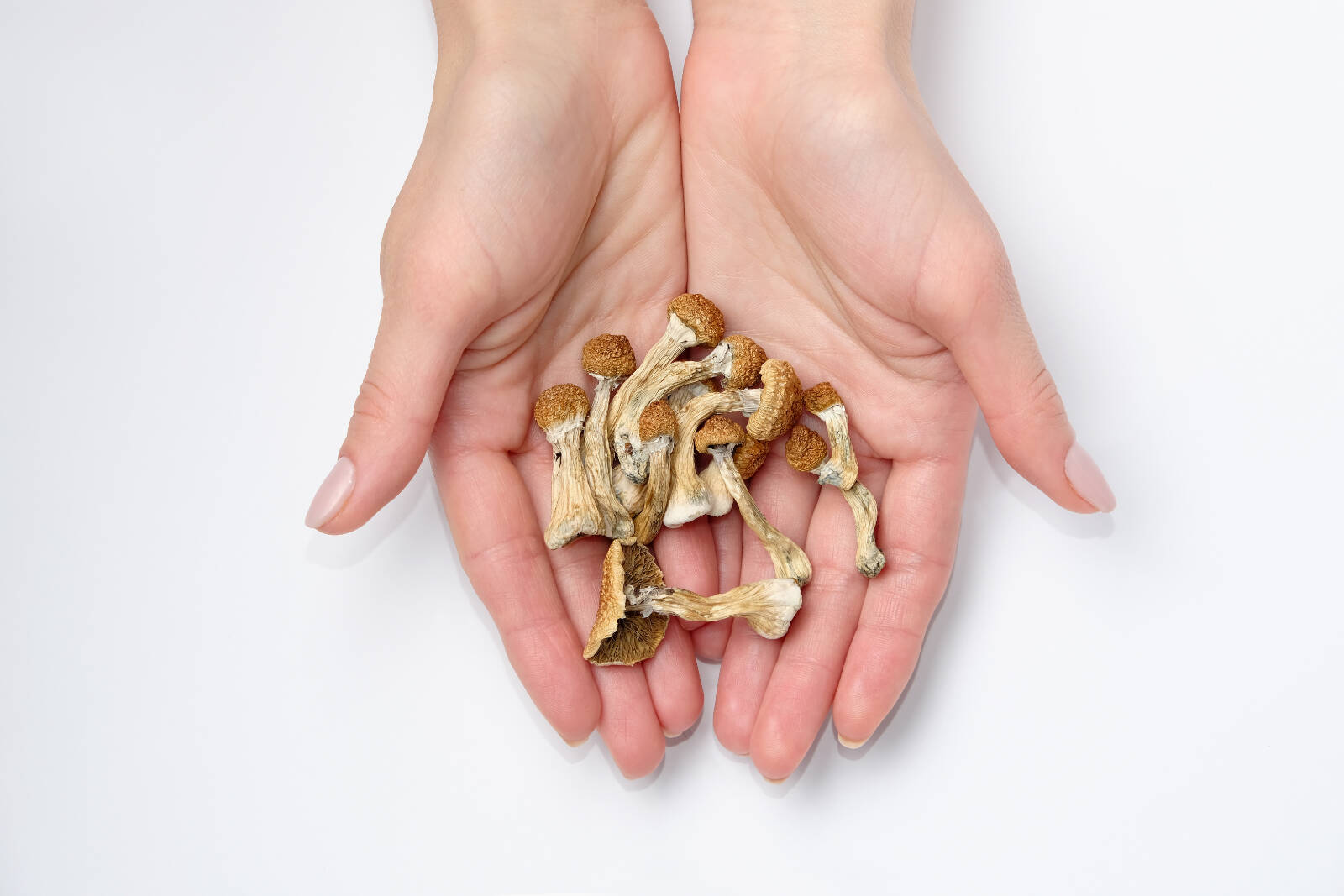By David Fraser, The Canadian Press
Thomas Hartle became one of the first Canadians to receive a federal exemption to treat symptoms of his stage-four colon cancer with magic mushrooms just a few years ago — and he was celebrated for it.
But not long after the landmark decision, Hartle says that legal avenues to access the drug have been “shut off,” even as an illegal market booms.
“The only places where I really run into problems is with the minister of health himself, and with Health Canada being resistant to moving forward with opening the avenues of this,” he said in an interview.
The psychoactive compound produced by the mushrooms, called psilocybin, is not legal in Canada. But early clinical trials are underway to test its effectiveness in treating mental health conditions such as anxiety and depression.
Listed under Schedule III of the Controlled Drugs and Substances Act, the drug can only be obtained legally via an exemption from the federal minister, as part of a clinical trial or through a special access program that allows physicians to request it for patients suffering from serious or life-threatening conditions.
But in some cities, including Vancouver, Toronto and Ottawa, psilocybin can be easily found at a growing number of brick-and-mortar shops openly selling magic mushrooms. And a web search for such products shows they are readily available for delivery to Canadian doorsteps.
In 2020, Hartle was was among a handful of patients — many of whom were suffering from terminal illness — granted the exemption to use psilocybin by former health minister Patty Hajdu.
The exemptions under Canada’s drug law did not allow the patients to buy or legally receive psilocybin, but it allowed their medical practitioners to use it for treatment without participating in a crime.
Hartle said the psilocybin made him more comfortable with his end-of-life anxiety, but his exemption expired after a year, and he is still waiting on an answer about getting another one.
He admits that nothing is stopping him from buying the illegal mushrooms that are available online or at brick-and-mortar stores. But he wants to discourage people from going “into these illegal markets and get treatment from potentially questionable sources and people,” he said.
“I would like this therapy to be medicalized so that it’s a treatment, (so) that your doctor can just give you a referral to a professional who is qualified and experienced and who has access to a safe supply.”
Health Canada said in a statement that early clinical trials examining psilocybin have shown “promising results,” but further research is still needed and “the best way for patients to access psilocybin is through participation in a clinical trial.”
Though Health Canada said dozens of ministerial exemptions were granted last year, more than a hundred requests are still outstanding, including Hartle’s.
“It is amazing that these patients can very easily go to storefronts and buy these mushrooms but are being barred from doing it safely with their doctor, from a regulated medical source,” said Spencer Hawkswell, the CEO of TheraPsil, a non-profit organization that offers training to health-care practitioners and is working with patients to obtain psilocybin and combat the government’s drug policy.
The group helped Hartle and others get their exemptions and is leading a legal challenge to fight the status of psilocybin in Federal Court.
The federal government never justified why it departed from the original decision to grant the exemptions, Hawkswell said. Instead, it is currently requiring doctors to apply through a Special Access Program to use psilocybin.
Hawkswell said that has created challenges because doctors are unwilling to apply or participate without first being trained. And outside of a clinical trial, experience treating patients with psilocybin was previously only available through an exemption.
This has the department and the current health minister, Jean-Yves Duclos, “putting the cart before the horse,” he said.
“You can almost think about it like the government granting patients access to chemotherapy but making medical school and the training around … chemotherapy illegal,” Hawkswell said. “All we would have is underground chemotherapy treatments. And that’s what’s happening today in Canada.”
Demand for training on how to use psilocybin-assisted psychotherapy has been “absolutely unbelievable,” he added. But he doesn’t blame the majority of doctors who are reluctant.
“They’re putting an awful lot on the line in terms of their reputation and credibility for this treatment because, you know, as of now, Health Canada does not recognize psilocybin as a treatment for anything.”
In the absence of federal regulation, some provinces are moving ahead with their own regulation regimes for psilocybin.
In December, Quebec became the first province to announce it would provide health coverage for the costs of psilocybin-assisted psychotherapy.
And this month, regulations for psychedelics, including psilocybin, MDMA and LSD, will come into force in Alberta that are intended to see the drugs administered by licensed practitioners.
But there is no visible effort at the federal or provincial level to take action against the out-in-the-open illegal sale of magic mushrooms.
Justice Minister David Lametti’s office referred questions about psilocybin to Health Canada, and Public Safety Minister Marco Mendicino’s office did not respond to questions about whether law enforcement should respond to stores that are operating illegally.
Hawkswell said the only way to upend a growing illegal market is to create a safe, regulated market.
“We should not have unregulated psilocybin. That’s what we have right now. It’s being sold and consumed widely in Canada,” he said. “We need to have regulations around this.”
Find the latest must-read stories from the cannabis world at canadianevergreen.com, your go-to source for news, trends, products and lifestyle inspiration from the cannabis community and beyond. You can also follow us on Facebook and Instagram and Twitter.

